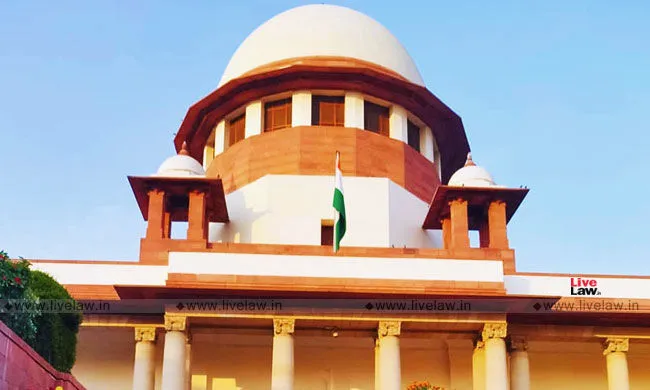An Anti-Climax to Socialistic Justice

Representative image of the Supreme Court
The recent interim ruling of the apex court to make COVID-19 testing free of cost in private labs across India, in response to a Public Interest Litigation (PIL) filed before it, is strongly disconcerting. In an almost unprecedented, unabashed display of judicial socialism, the judges in their best of merits felt that the private labs should extend “philanthropic” cooperation in the “hour of national crisis”- by doling out expensive tests at no cost. In all, it is deplorable that the judgement failed to harp beyond the obvious lines of thought; what now remains is a poignant amalgamation of regulatory confusion, a certainty of reduced testing, and economic haemorrhage for the already stressed private medical facilities.
On the surface, this moral grandstanding presents itself as a necessary measure to protect those who can ill-afford any diagnostic tests. However, when put under the scanner, it becomes incredulously convenient to point out how irrational and impractical this order is. Medical facilities, both government and private, are already grappling with a shortage of raw materials and equipment. Consequently, testing kits and requisite raw materials come at enhanced, premium rates now. Unlike the government, which has an almost unlimited amount of money to diagnose and detect COVID-19 patients, the private labs have been perenially dependent on regular cash flow to keep their services up and running. With near-zero cash reserves, quickly emptying buffer stocks, and skyrocketing prices of available kits, conducting tests without any remuneration is the equivalent of a financial suicide for such firms. Where the court could have put the onus of compensation upon the government, it lousily pushed away the responsibility of fixing such a package under the garb of a well-knitted line- “… the question as to whether the private laboratories carrying free of cost COVID-19 tests are entitled for any reimbursement of expenses incurred, shall be considered later on.”
The unintended ramification of this order would be a drastic fall in testing rates at a time we need it the most. It is not difficult to prognosticate why. If there are no incentives for a firm running such expensive tests (earlier capped at ₹4,500 a test), it does not make sense to continue with such a monetary bleed. Hence, private institutions may outrightly reject patients from getting tested, or may directly go under, as they will then be left with no options. This will severely handicap the current efforts underway to prop up testing rates, and secure public-private partnership in dealing with the pandemic situation. Left fending for itself, the government will not be able to ensure widespread testing, having only a minuscule number of facilities for a population as humongous as 1.3 billion.
A Way Forward
Not all is lost, however, in this quagmire of confusion. A few potential solutions are worth visiting. Firstly, the obvious way is to seek governmental compensation for every test conducted. This option seems highly improbable as the government would be least interested to shoulder the additional financial burden on the exchequer. A much better and viable alternative for the government is to fix a testing rate for each individual private lab, depending on their revenue generation and accounting figures- to make the labs operational at break-even. This would ensure that while the facilities do not drown under debt and chart negative territories, they also do not engage in profiteering from a humanitarian challenge. Lastly, a long term objective for the government should be to incorporate a ‘Right to Health’ under the existing charter of Fundamental Rights guaranteed by the Constitution. Although the Supreme Court has of late considered the provision de facto, it has had no constitutional backing. Furthermore, sectoral reallocation decided as per priority, should be immediately worked upon to ensure higher funding to healthcare and allied medical services. It would certainly not hurt the Defence Establishment to have a proportionate cut to re-align spending and meet with immediate objectives. Likewise, subsidies on fertilisers and other products should also be reconsidered for the time being, which would free up a lot of monetary resources. The money saved should be immediately spun into developing world-class infrastructure to deal with pandemoniums that only a pandemic of this scale can bring with it.
Unless the government acts decisively to intervene and shed clarity on the order, crucial time would be lost in the war against SARS-CoV-2. It is important to understand that both the private facilities and the government institutions hold equal stake in their concerted effort; derailing one under the guise of the common good would be nothing more than an anti-climax to socialistic justice, an apathy of the highest order, and an act of the imbecile.